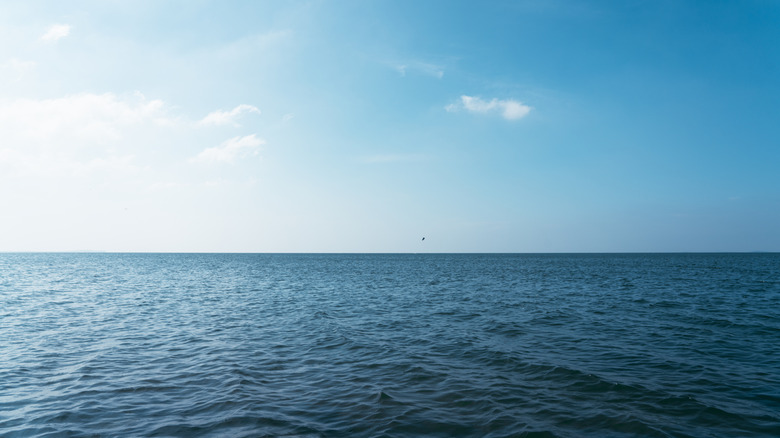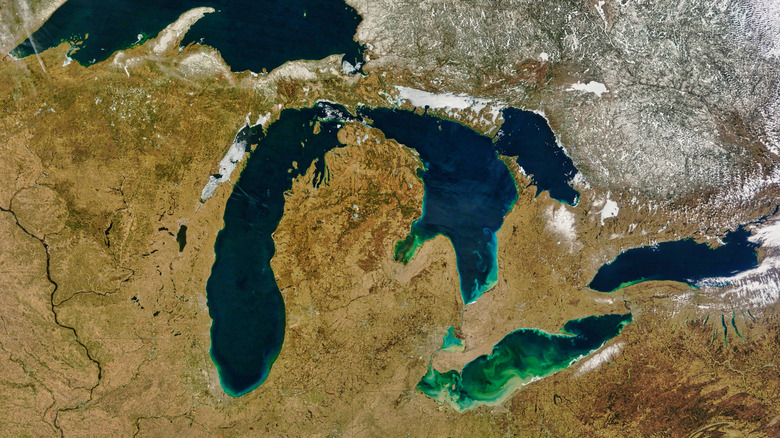Why Is The Ocean Salty But Lakes Aren't?
Roughly 71% of the Earth's surface is covered in water, but not all of it is created equal. The fresh water we need for survival accounts for only about 3.5% of all the liquid water on the planet, with the rest being salty ocean brine. The causes of this vast discrepancy can be traced all the way back to the formation of Earth, when the nascent planet was a hellscape of active volcanoes. Each eruption blasted minerals, including salt ions (the chemical components of salt), into the atmosphere, along with water vapor. When the planet began to cool down, that water vapor condensed and descended from the skies. The rain lasted for centuries, forming the world's oceans. All of that rain also brought back down the salt ions that had previously been released into the atmosphere, which made the water salty.
After the oceans formed, they continued to get saltier and saltier over millions of years, primarily due to the effects of soil erosion. Rainwater is slightly acidic, and when it falls on rocks, it strips away some of the minerals, including salt. Rivers and streams pick up this runoff, carrying roughly four billion tons of dissolved salts into the oceans each year. Hydrothermal vents on the ocean floor also contribute by pushing minerals from inside the Earth out into the water. Although salt keeps entering the ocean, marine life also takes in a lot of it, and these days, saltwater ecosystems are more or less balanced. But what's happening with freshwater?
Why lakes aren't salty
The reason that lakes aren't salty while oceans are is all thanks to the water cycle. Soil erosion does deposit salt ions and other dissolved minerals into lakes, but then rivers and streams carry them away. So, even though salt does get into lakes, it never really builds up. Instead, rivers and streams carry the salt to the ocean, from whence it has nowhere else to go. Rivers and lakes are fed by precipitation — rain and snowfall — which comes from water evaporated from the ocean. However, when water evaporates from the sea, it leaves the salt behind, so the precipitation that fills Earth's lakes is all fresh water.
Some lakes do have salty water, with two of the most notable examples being the Dead Sea and the Great Salt Lake. These lakes do not have any rivers that flow out of them, meaning there is nothing to carry the salt away and to the ocean. Consequently, both of them have extremely salty water. Another notable case is the Caspian Sea, the world's largest inland body of water. It's considered both a lake and a sea, which is appropriate because its north end, where the Volga River empties, is fresh like a lake, but the southern end, which has no outlet, is salty like the ocean. Sometimes you can have the best of both worlds.

